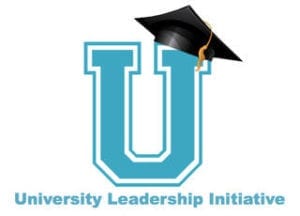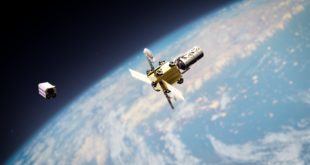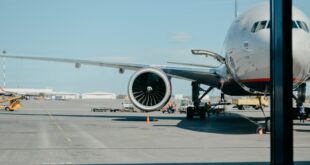
NASA has selected five teams led by university faculty and students to examine a range of technical areas in support of the agency’s aeronautics research goals.
Known as the University Leadership Initiative (ULI), the project will provide a total of US$32.8 million to the five teams during the next four years.
“Each of these teams is working on important problems that definitely will help break down barriers in ways that will benefit the U.S. aviation industry,” said John Cavolowsky, director of NASA’s Transformative Aeronautics Concepts Program in Washington, D.C.
This is the third time NASA Aeronautics has reached out to the academic community in this way. Five teams were selected in 2017 and three teams announced in 2019.
Unlike other NASA-funded research programs in which the agency specifies the project goals, universities are asked to come up with a compelling investigation, so long as that technical challenge addresses one of the strategic research thrusts of NASA.
Another key goal of ULI is for the student researchers involved to gain experience in leading a multidisciplinary team made up of partners from other universities and industry, especially representing those who traditionally have not applied their skills to aviation problems.
“We’ve also sought to emphasize inclusion of universities that serve underrepresented student populations and I think we’ve been successful this year in achieving that goal,” said Koushik Datta, ULI project manager at NASA’s Ames Research Center in California’s Silicon Valley.
For the first time, a ULI team will be led by a historically black university, North Carolina Agricultural & Technical State University in Greensboro. Moreover, team leader Oklahoma State University in Stillwater is known for graduating the most Native American students of any school in the nation.
The five team leaders and their research topics are:
North Carolina Agricultural & Technical State University
The team seeks to develop a novel integration of secure and safe autonomous systems used on unmanned Advanced Air Mobility (AAM) aircraft with the goal of advancing their technical readiness level and be ready for industry to consider using these technologies. The team intends to validate these systems with flight tests of multiple aircraft.
The team will receive $8 million over four years. Team members include Purdue University in West Lafayette, Indiana; Georgia Institute of Technology in Atlanta; Aurora Flight Sciences in Manassas, Virginia; Alaka’i Technologies Corporation in Hopkinton, Massachusetts; General Atomics Aeronautical Systems in Poway, California; and Northrop Grumman Corporation in Linthicum, Maryland.
Oklahoma State University
The team will look for ways to improve real-time weather forecasting of low-level winds and turbulence in both rural and urban environments with an eye to improving safety for Unmanned Aircraft Systems flying in AAM operations.
The team will receive $5.2 million over four years. Team members include the University of Oklahoma in Norman; University of Nebraska Lincoln; University of Kentucky in Lexington; National Center for Atmospheric Research in Boulder, Colorado; Vigilant Aerospace Systems Inc. in Oklahoma City; AirXOS, part of GE Aviation, in Boston; and the Choctaw Nation of Oklahoma.
Stanford University
The team will seek to develop tools that ensure machine learning in autonomous systems used by unmanned AAM aircraft work as expected in real-time, as well as to employ fault detection and recovery methods if they do not, particularly in situations involving taxiing, landing and collision avoidance.
The team will receive $8 million over four years. Team members include the Massachusetts Institute of Technology in Cambridge; Georgia Tech in Atlanta; University of New Mexico in Albuquerque; Hampton University in Hampton, Virginia; University of California, Berkeley; MIT Lincoln Laboratory in Lexington, Massachusetts; and United Technologies Research Center Inc. in Berkeley, California.
University of Delaware
Using a composite supply method already developed under a Defense Advanced Research Project Agency program, the team plans to demonstrate the ability to produce aerospace-quality components at a rate comparable to that of the automotive industry.
The work supports a NASA research goal to find ways to help manufacturers increase the rate at which they can produce hardware using composite materials.
The team will receive $5.9 million over four years. Team members include Southern University and A&M College in Baton Rouge, Louisiana; Joby Aviation in Santa Cruz, California; Spirit AeroSystems Inc. in Wichita, Kansas; Advanced Thermoplastic Composites Manufacturing in Post Falls, Idaho; American Composite Manufacturers Association in Arlington, Virginia; Arkema Inc. in King of Prussia, Pennsylvania; and SGL Carbon in Charlotte, North Carolina.
University of South Carolina
The team seeks to develop tools and technology to help better understand and safely use a composite tape made of thermoplastic in designing and manufacturing parts for an AAM vehicle. Two structural parts typical of an AAM vehicle – a fan blade and airframe shell component – will be designed and built to demonstrate the technology.
The team will receive $5.7 million over four years. Team members include the University of Southern Mississippi in Hattiesburg; Boise State University in Boise, Idaho; Benedict College in Columbia, South Carolina; The Boeing Company in Chicago; Joby Aviation in Santa Cruz, California; Toray Advanced Composites USA in Morgan Hill, California; Ingersoll Machine Tools Inc. in Rockford, Illinois; Smart Tooling in Xenia, Ohio; C. A. Litzler Co. Inc. in Cleveland; Schrӧdinger in New York City; and Collins Aerospace in Melbourne, Florida.
A fourth round of ULI request for proposals is anticipated to be announced soon. An online virtual workshop for interested participants is currently scheduled for Thursday, 30 April. More information is available at this ULI website.
This announcement was posted on 10 April 2020.
 SpaceWatch.Global An independent perspective on space
SpaceWatch.Global An independent perspective on space




